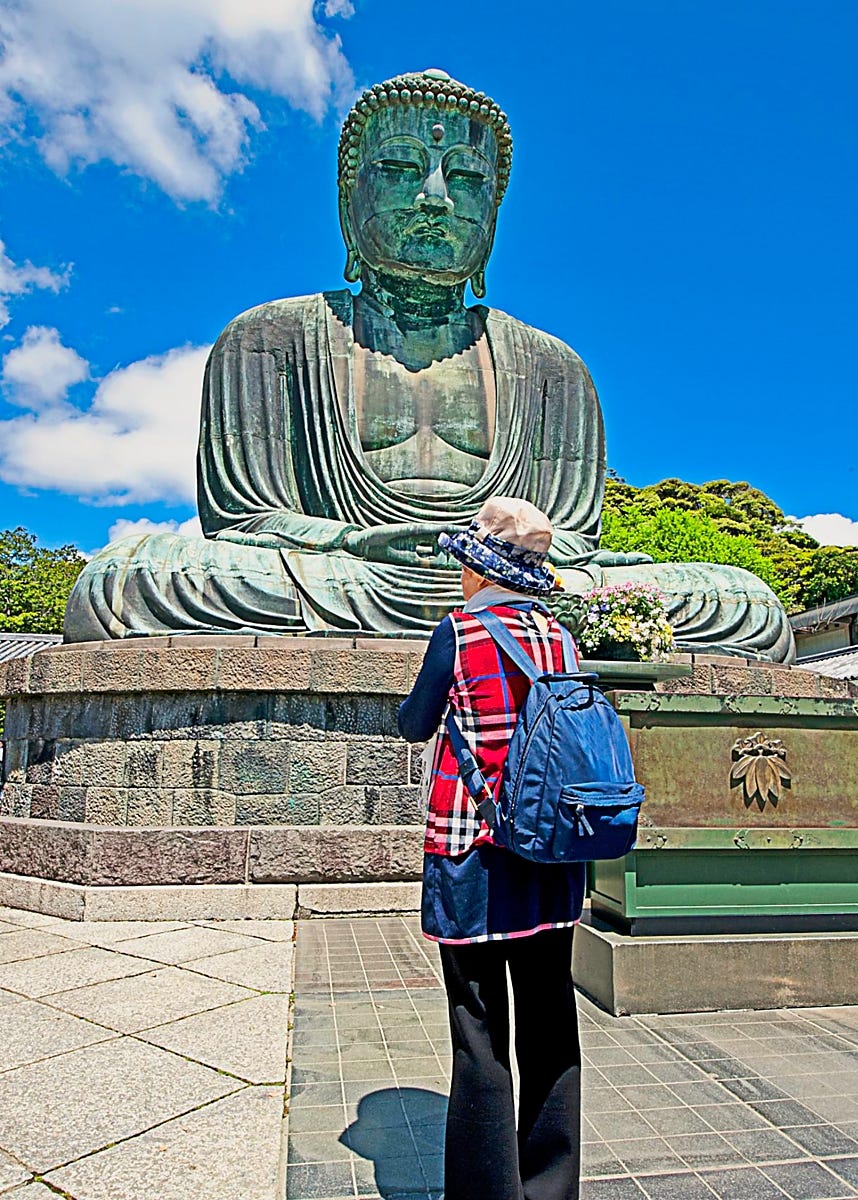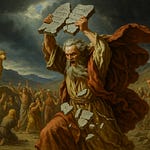
This recent post on Kaspa Thompson’s Substack, Just As You Are, got me thinking about a “higher power,” the two words that turn many away from religion. We wonder:
Except for nature, is there really spiritual power greater than you and me?
Over the years, I’ve met many recovering addicts who were grateful to Buddhism for enabling them to join 12-step programs. As long as they limited their concept of a higher power to the sovereign creator god of Abrahamic religions, they couldn’t get past the first step, which in the Alcoholics Anonymous version is:
We admitted we were powerless over alcohol—that our lives had become unmanageable.
The second step is:
Came to believe that a Power greater than ourselves could restore us to sanity.
That’s a stopper for many until they find that their concept of the Buddha Nature, which exists in each of us, is a power greater than any individual, or perhaps greater than all of us combined. Then they can reframe the word “God” in the remaining ten steps to “higher power” and earnestly join the program.
But is the Buddha Nature really a “power.” If not, what is it? How do we define it. In a stab at an answer I’ll retell the story I heard from Lama Surya Das:
When Moses approached the Israelites carrying the Ten Commandments after spending forty days alone with God on Mount Sinai, he found them dancing around a golden calf. In their boredom and fear that he wouldn’t return, they decided to try worshiping another god. Moses was so angry that he smashed the inscribed tablet God had given him and ordered the Israelites to melt the calf and drink water mixed with sand.
When Moses told God what his people had done, God instructed him to carve another tablet and return up the mountain for God to inscribe it. Then God added:
Chill out, man! Do you think what I gave you, and by extension your people, over 40 days and nights could ever be summed up in words inscribed on tablets? Words and objects can’t ever convey what I gave you.
—A Variation of a Famous Bible Story
You and I may find semantic arguments fun and stimulating, but they don’t get us closer to spiritual fulfillment. I’m comfortable putting Buddhism, as I understand it, into the category of panentheism. If you aren’t, that’s cool.
Buddhist panentheism seems a bit cold, though. Where is the entity whose “eye is on the sparrow so I know he watches me” or the one who “died for my sins”? Can we find connection to a formless “nature” that exists in all beings?
For many of us, that’s where deity yoga, or deity worship, comes in. It's human nature to look outside of ourselves for guidance and a sense of connection to something greater. When we take refuge in the Buddha, the dharma, and the sangha, we are finding our home base there. The Buddha in that sense is the person, all buddhas of all time, and--importantly--the Buddha Nature that's within each of us, including you, me, and Siddhartha Gautama.
So if it fits your comfort level, see the Buddha and other deities as archetypes of what exists in you. It may be, depending on the path you choose, that your feelings will change over time, but what matters is this moment, and it's OK to perceive the higher power that way.
The Buddha Amitabha is the embodiment of Buddha Nature that works for me as a deity to venerate. Is there “really” such a deity. The only reality is the one that exists in my mind. I don’t know if there’s an objective reality independent of my mind, and I don’t care. That’s another thing beyond human understanding.
My higher power is the Buddha Nature within me and within all sentient beings in a web so intricately interconnected that we are one or might as well be conceived of as one. Amitabha is the symbol I have chosen to represent all of buddhahood.
My end-of-day ritual is simple. I get into bed, close my eyes, and enter a state of pure awareness. I’m not sure if I invite Amitabha to join me or he just shows up. But he’s there with me as I fall asleep. Whether he exists outside my mind is irrelevant. I am not alone, and I quickly fall asleep.
None of us need be alone.
Mel’s book, The New Middle Way: A Buddhist Path Between Secular and Ossified - Enlightenment for Regular Folks, is available from Amazon and Audible. The paperback is now available worldwide from non-Amazon outlets like Barnes & Noble, and the eBook will be on September 4. You can choose your favorite retailer here.
This short post is going to all subscribers with no paywall. Consider sharing it with a friemnd
Receive six free guided meditations and subscribe to Mel’s Awakening for Regular Folks newsletter.
From the Pure Land has thousands of readers and subscribers in 39 U.S. states and 29 countries, and the podcast has thousands of listeners in 17 countries.












Share this post